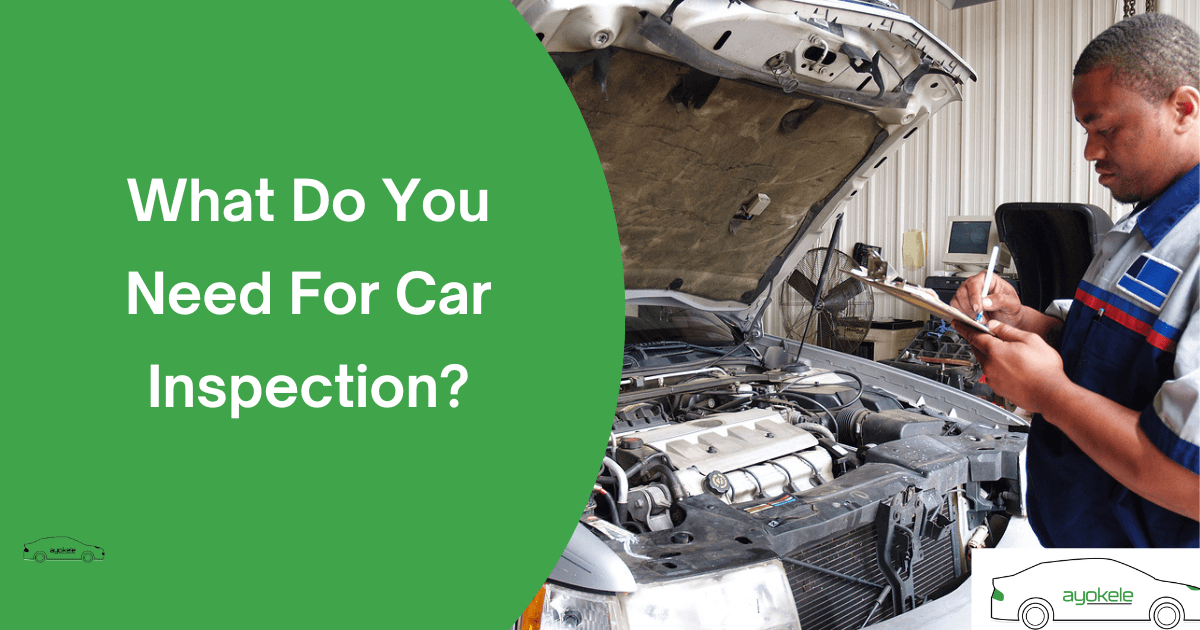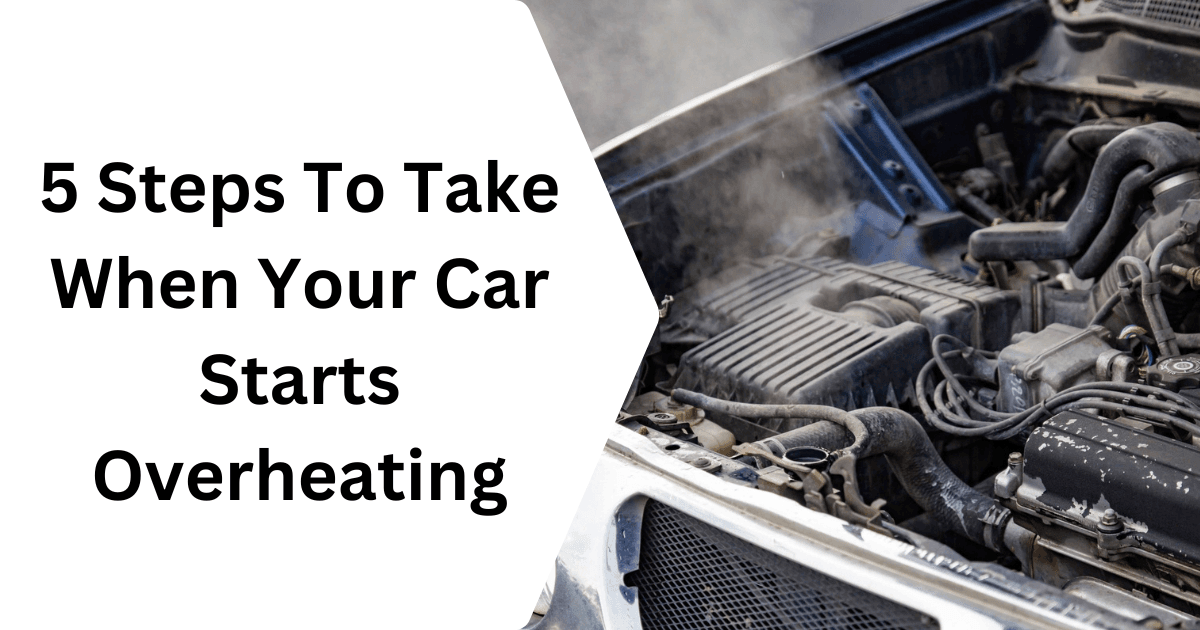Car inspections are an essential part of responsible vehicle ownership, ensuring your car is safe, roadworthy, and compliant with regulations. While this is unpopular in Nigeria, regular inspections help identify potential issues early, reducing the risk of accidents and costly repairs. Whether you’re preparing for a routine check or a mandatory inspection, knowing what you need can save time and make the process smoother. In this guide, we’ll cover the key items to bring for a car inspection and tips to help you get your car ready.
Key Items to Bring for a Car Inspection
1. Vehicle Registration Documents
Your car’s registration documents are essential for any inspection. These documents confirm that the vehicle is legally registered and help the inspectors verify ownership. Ensure the documents are up to date and valid. If your registration has expired, renew it before the inspection to avoid delays or penalties.
2. Proof of Insurance
Most car inspections require proof of valid insurance. This document shows that your vehicle is covered in case of accidents or damages. Double-check your insurance policy to ensure it meets the legal requirements in your area. Keep a physical or digital copy readily available for the inspection process.
3. Driver’s License
Your driver’s license is another crucial item to bring. It serves as a form of identification and verifies that you are authorized to operate the vehicle. Make sure your license is valid and hasn’t expired before heading for the inspection.
4. Maintenance Records (if required)
While not always mandatory, maintenance records can be helpful during a car inspection. These records provide proof that you’ve been keeping up with routine maintenance, such as oil changes and brake checks. They also make it easier to address any specific questions or concerns during the inspection.
What Do You Need for a Car Inspection?
1. Vehicle Registration Documents
Your vehicle registration documents are essential for any car inspection. These papers confirm that your car is legally registered and help the inspection officer verify its ownership. Without them, your inspection process cannot be completed, and you may face legal penalties for non-compliance.
Ensure that your registration is valid and up to date before visiting the inspection center. If your registration has expired, renew it in advance to avoid delays. Keep the original document or a certified copy on hand during the inspection.
2. Proof of Insurance
Proof of insurance is another key requirement for car inspections. This document shows that your car is insured, which is often mandatory to operate a vehicle legally. It protects you and other road users in case of accidents or damage.
Ensure your insurance policy is active and meets the local requirements for coverage. Bring a physical copy or have a digital version ready on your smartphone. Double-check the expiry date to avoid complications during the inspection.
3. Driver’s License
A valid driver’s license is required not just for driving but also during car inspections. It serves as a form of identification and proves that you are legally allowed to operate a vehicle.
Before heading to the inspection center, verify that your license hasn’t expired. Carry the original license with you, as it will likely be requested during the inspection process.
4. Previous Inspection Reports (if applicable)
If your car has undergone inspections before, it’s a good idea to bring the previous reports. These records can help the inspector understand your car’s history and determine whether prior issues have been resolved.
Maintaining a record of inspections is particularly helpful for used cars or vehicles that required repairs after failing a previous inspection. It saves time and builds confidence in the inspector about your car’s condition.
5. Car Owner’s Manual
Your car owner’s manual can be a valuable resource during an inspection. It contains detailed information about your car’s specifications and maintenance requirements, which might be referenced during the process.
Keep the manual in your glove compartment or another easily accessible location. It’s particularly helpful if the inspector needs to check specific details, like tire pressure recommendations or warning light meanings.
What Happens if Your Car Fails the Inspection?
Failing a car inspection can be frustrating, but it’s not the end of the road. If your car fails, you will typically receive a report detailing the reasons for failure. Common issues include faulty brakes, worn-out tires, malfunctioning lights, or excessive emissions. Use this report as a guide to address the problems before attempting a reinspection.
Once you’ve identified the issues, take your car to a trusted mechanic for repairs. Ensure all problems are fixed properly, as failing the reinspection could result in fines or restrictions on driving the vehicle. Some inspection centers even offer free or discounted reinspections if you return within a specific timeframe, so check their policies to save costs.
Importance of Regular Car Maintenance Before Inspection
1. Prevents Inspection Failures
Regular car maintenance ensures your vehicle is in good condition and reduces the chances of failing an inspection. Common issues like worn-out tires, low fluid levels, or faulty lights are easily addressed during routine maintenance. By taking care of these problems beforehand, you save time, avoid the inconvenience of reinspections, and prevent potential fines.
Routine maintenance also helps you identify and fix hidden problems that might not be obvious but could lead to inspection failure. For example, checking your brakes or replacing an old battery can make a big difference in passing the inspection smoothly.
2. Enhances Safety and Reliability
A well-maintained car is not just about passing inspections—it’s also about ensuring safety for you and others on the road. Addressing issues like brake performance, tire condition, and steering alignment during regular maintenance reduces the risk of accidents.
Additionally, a properly maintained vehicle is more reliable and less likely to break down unexpectedly. Inspections are designed to confirm your car is roadworthy, and consistent maintenance ensures that you meet these standards effortlessly.
FAQs
1. How often should I get my car inspected?
In most cases, cars should be inspected annually or as required by local regulations. Always check your country’s guidelines, as the frequency may vary based on the type of vehicle or its age.
2. What are the common reasons for failing a car inspection?
Common reasons include worn-out tires, faulty brakes, low fluid levels, non-functioning lights, and high emissions. Regular maintenance can help you address these issues beforehand.
3. Can I drive my car if it fails the inspection?
In many cases, you may be allowed to drive the car for a limited period to fix the issues. However, some severe failures, like brake problems, may require immediate repairs before the vehicle is considered roadworthy.
4. Do I need an appointment for a car inspection?
This depends on the inspection center. Some centers allow walk-ins, while others require appointments. It’s best to call ahead and confirm to save time.
5. Is an inspection necessary if my car is brand new?
New cars often come with a grace period before requiring inspections. However, it’s important to check local regulations to confirm when your first inspection is due.




